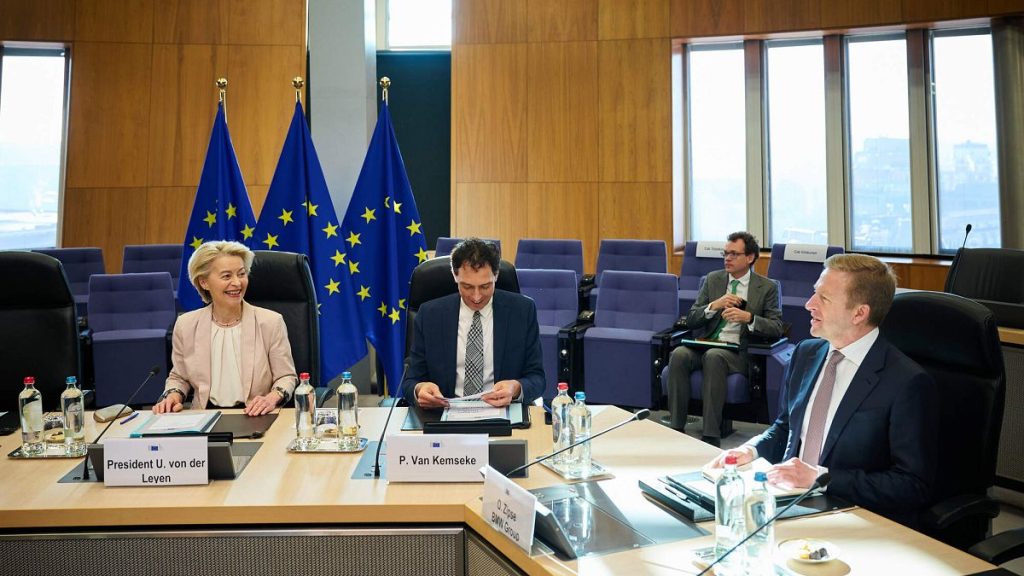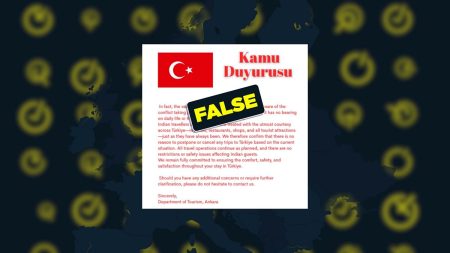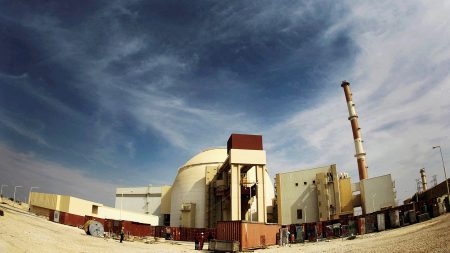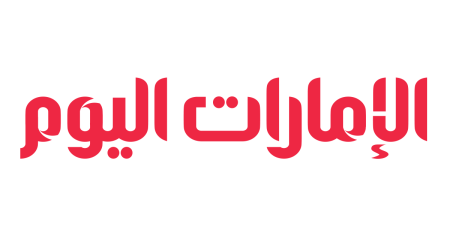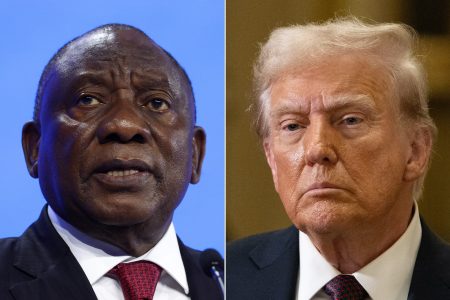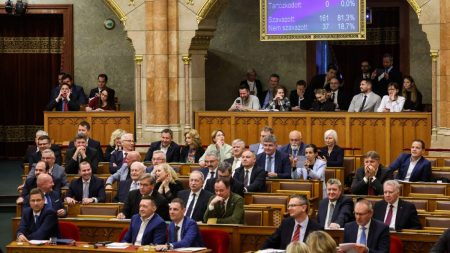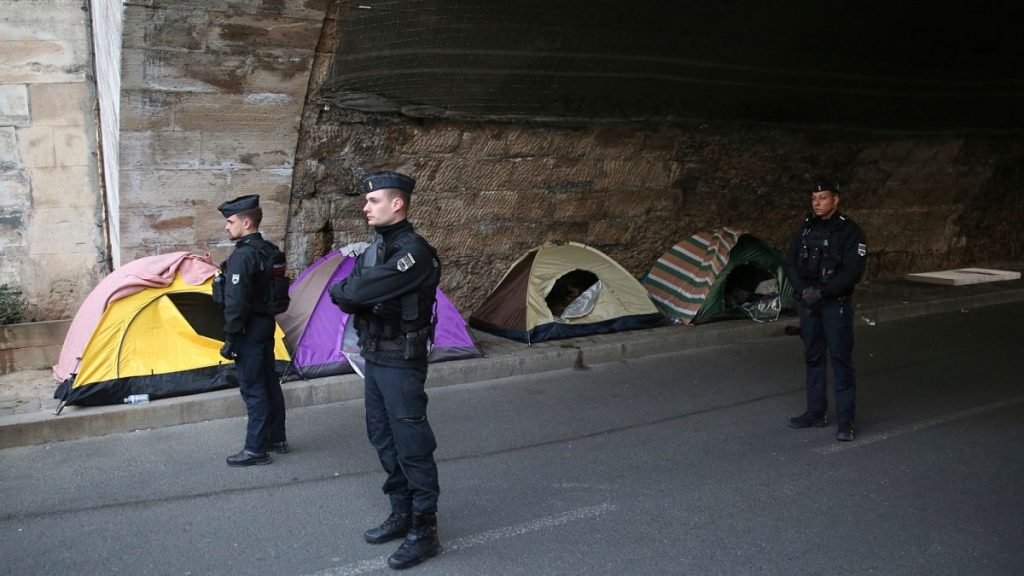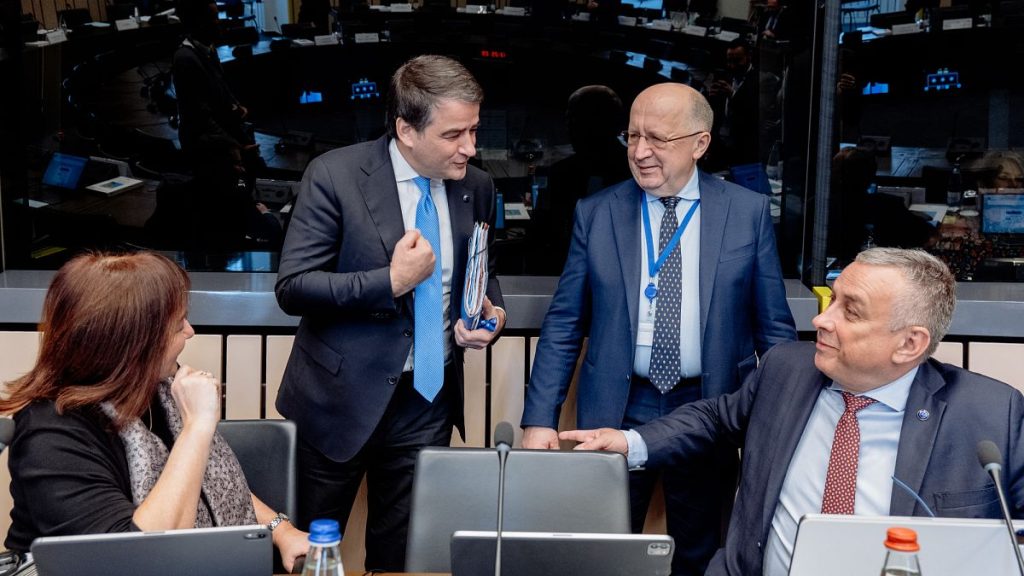Summarize this content to 2000 words in 6 paragraphs in Arabic
Ten years after the Dieselgate scandal over cheating in exhaust emissions tests, European carmakers are in the frame again, this time for market skulduggery in the form of a clandestine agreement not to compete on grounds of environmental friendliness on the basis of their support for recycling.
ADVERTISEMENTThe European Commission has dished out whopping fines to 15 carmakers and their main Brussels-based lobby group, on the same day that the EU executive delivered a proposal to water down CO2 emissions standards following months of alarmist campaigning by the automotive industry. “These car manufacturers coordinated for over 15 years to avoid paying for recycling services, by agreeing to not compete with each other on advertising the extent to which their cars could be recycled, and by agreeing to remain silent on the recycled materials used in their new cars,” European Commission vice-president Teresa Ribera said. “We will not tolerate cartels of any kind, and that includes those that suppress customer awareness and demand for more environmental-friendly products,” added the Spanish former environment minister Ribera, whose EU portfolio includes sustainability and competition policy. The largest fine of almost €128 million went to Germany’s Volkswagen, which was at the centre of the Dieselgate scandal that broke out in 2015. Renault/Nissan came second with €81m. Stellantis’ would have come top, but its fine was halved to €75m after the firm cooperated with the Commission in its probe. Mitsubishi (€4m) and Ford (€41m) also had their fines reduced under the same leniency procedure. Mercedes-Benz managed to avoid altogether what would have been a €35m fine by blowing the whistle on its competitors, or “revealing the cartel” as the Commission put it. BMW, GM, Geely, Honda, Hyundai/Kia, Jaguar, Land Rover/Tata, Mazda, Opel, Suzuki, Toyota, Volvo and Geely (not in that order) also received fines ranging between €1m and €25m. The European Automobile Manufacturers’ Association (ACEA) was also hit with a €500,000 fine for acting as “facilitator of the cartel, having organised numerous meetings and contacts between car manufacturers involved”. The news of the cartels comes on the same day that the Commission formally proposed easing the compliance deadline for new CO2 emissions limits that took effect this year. ACEA and its members have campaigned vigorously, arguing they faced collective fines in excess of €13bn that posed an existential threat to the European industry.Critics said carmakers had brought the situation on themselves by gambling on rising sales of electric vehicles to bring down average emissions in portfolios skewed towards profitable SUV type vehicles. Under the Commission’s proposal, compliance would be based on the three-year average starting in 2025, giving carmakers wriggle room to ramp production of smaller, cheaper electric vehicles. “Our highly innovative automotive industry is decarbonising to contribute to the fight against climate change, but also to maintain its competitive edge on the world markets,” said European Commission president Ursula von der Leyen, who took personal charge of a policy dialogue to rescue the industry. “With today’s initiative, we grant more flexibility to this key sector, and at the same time we stay the course of our climate goals,” von der Leyen said.
rewrite this title in Arabic EU fines carmakers €458 million for anti-recycling cartel
مقالات ذات صلة
rewrite this title in Arabic Video. French authorities clear migrant camps along Seine in Paris
Summarize this content to 2000 words in 6 paragraphs in Arabic
Updated: 01/04/2025 – 16:15 GMT+2With the winter truce over, Paris authorities began clearing migrant camps along the Seine, drawing criticism from NGOs over forced evictions and relocations.
… More
Hundreds of migrants were evicted from makeshift camps along the Seine in Paris early Tuesday as French authorities carried out an operation marking the end of the winter truce. The annual pause on evictions during the colder months ended with police clearing around 100 tents set up along the riverbanks, according to NGO Utopia 56. The organisation condemned the operation, warning that it leaves migrants in an endless cycle of displacement.The evacuation follows a similar operation in March when French police removed 450 young migrants from an occupied cultural centre in the capital.
مقالات ذات صلة
rewrite this title in Arabic Water and defence – but not bullets: EU reallocates regional funds
Summarize this content to 2000 words in 6 paragraphs in Arabic
The EU executive has invited member states to redirect regional spending – accounting for one-third of the EU budget – toward various strategic areas such as water resilience and affordable housing, including defence to a limited extent.
ADVERTISEMENTWater resilience, housing and defence are among priorities to which the European Commission on Tuesday urged member states to reallocate EU regional funds as part of a mid-term evaluation, but the executive stressed that funding weaponry would be off limits.This assessment aims to evaluate the performance, effectiveness, and efficiency of funds totalling nearly €370 billion for the 2021-2027 programming period, representing a significant portion of the EU’s long-term budget.Traditionally, these funds are designed to reduce economic, social, and territorial disparities across EU regions by supporting investments in infrastructure and innovation.However, since the programme’s approval in 2022, global circumstances have shifted, presenting new challenges for regions.Commission Executive Vice President Raffaele Fitto, who oversees cohesion policy, said adapting the allocation of these resources to emerging priorities is essential. “This proposal is a way to allow the use of resources and to adapt them to these new priorities,” Fitto said.Member states are now encouraged to reallocate part of their 2021-2027 cohesion funds to five key investment areas: competitiveness and decarbonisation, defence, affordable housing, water resilience, and energy transition across all EU regions.Not a way to fund EU rearmamentThe potential redirection of funds toward defence sparked debate among EU member states and regional authorities ahead of the proposal’s official presentation.Initial speculation that these funds might be reallocated for defence purposes has been partially confirmed, as the Commission has, for the first time, opened the possibility of using regional funds for defence-related investments.Currently, such investments are mostly restricted to dual-use technologies and infrastructure, such as transport networks.“We propose that member states and regions can use cohesion funds to support certain defence actions,” Fitto said.However, the proposal’s impact on the defence sector remains limited. It would only allow member states and regions to use existing funds to enhance productive capacities in defence enterprises and build resilient infrastructure to improve military mobility.“This has nothing to do with the purchase of weapons. I want to emphasise this because otherwise, we risk discussing things that do not correspond to the truth,” he added.Water resilience and affordable housingAnother major focus of the Commission’s proposal is addressing the housing investment gap by providing financial incentives for member states and regions to direct funding toward affordable housing.The objective is to significantly increase cohesion policy resources allocated to affordable housing over the coming years. “In all my meetings with mayors and ministers, housing was a priority, and it is important to push in this direction,” Fitto said.Member states and regions will be able to leverage public and private financing to expand affordable housing supply through the forthcoming pan-European Investment Platform for affordable and sustainable housing.ADVERTISEMENTWater resilience is another area where the Commission is proposing enhanced measures. The European Regional Development Fund (ERDF) objectives have been revised to support investments that secure water access, promote sustainable water management, and strengthen water resilience.This includes improving water efficiency, increasing digitisation of water infrastructure, and mitigating the impacts of drought and desertification, while ensuring compliance with the Urban Wastewater Treatment Directive.Freedom for countriesMember states have the discretion to redirect their cohesion funds toward the EU’s strategic priorities or to maintain their current allocations.“It is a free choice of member states, not a decision imposed by the Commission,” Fitto explained in a press conference.ADVERTISEMENTTo encourage reallocation, the Commission is offering better financing conditions and greater flexibility. For example, reprogrammed resources dedicated to these strategic objectives will benefit from an additional one-time pre-financing of 30% in 2026 and the possibility of up to 100% EU financing.Member states and regions must submit their proposed amendments to the cohesion programmes within two months of the revised legislation’s entry into force. The Commission will assess these amendments and collaborate with national and regional authorities to adopt the revised programmes.The reprogramming process is expected to be completed by the end of 2025, allowing the updated programmes to be implemented from 2026 onwards.ADVERTISEMENT
مقالات ذات صلة
مال واعمال
مواضيع رائجة
النشرة البريدية
اشترك للحصول على اخر الأخبار لحظة بلحظة الى بريدك الإلكتروني.





